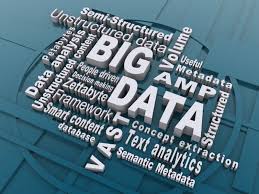Make it Your Business to Understand Big Data
 "Big data" is a loosely defined concept that involves a lot of technical jargon, the benefits of which have traditionally only been realized by corporate juggernauts that have the resources, personnel and capacity to warehouse, extract, sort and utilize mountains of raw data.
"Big data" is a loosely defined concept that involves a lot of technical jargon, the benefits of which have traditionally only been realized by corporate juggernauts that have the resources, personnel and capacity to warehouse, extract, sort and utilize mountains of raw data.
But big data is not that complicated.
In fact, it's exactly what its name implies - and for businesses that understand how to use it, big data can be a surprisingly cost-effective way to improve marketing, customer relationships and product quality.
Understanding Big Data
Defined as "massive, rapidly expanding, varied and often unstructured sets of digitized data that are difficult to maintain using traditional databases," big data is the result of the unbridled accumulation of data by people and businesses.
In all the time leading up to 2003, humanity only amassed 5 billion gigabytes of data.
By 2012, the number reached 2.7 zettabytes (a zettabyte is a byte multiplied by the seventh power of 1,000).
From digital photos to social-media posts to online purchases, everything we do online accumulates data.
As recent controversies involving entities such as the National Security Agency and Facebook revealed, whoever can gather, sort and use these mountains of raw data has the potential to gain extraordinary power.
Big Data for Small Business
So, your business isn't exactly Facebook or the NSA.
As discussed in the article "Real world big data: Challenges and opportunities," it doesn't have to be in order to use big data to its advantage.
As Entrepreneur.com recently pointed out, big data solutions are usually crafted at the enterprise level and require massive upfront investments on the assumption that the technology will pay for itself once the application is rolled out to thousands of internal users.
Many big data firms, however, are targeting smaller businesses and scaling from the ground up, meaning that minimal initial investments can later be enhanced as needed.
Inc.com recently profiled a number of small and medium-sized businesses that benefited from the falling costs and more eclectic big data menus offered by everyone from behemoths such as IBM and Microsoft to startups such as Tranzlogic and Kaggle.
Marketing is the biggest and most obvious arena to utilize the benefits of big data.
When customers make purchases, they leave mountains of data.
Not only their personal and contact information, but date and time of purchase, amount and frequency of purchase, any coupons that were used or ignored, whether or not they bought online, etc., can all lead to major gains if a business has the tools to turn the data into actionable research.
But customer outreach and product enhancement are also viable avenues of improvement for small businesses that realize the power of big data.
Andrew Lisa is a freelance business writer. He covers startup enterprise and business technology.

 Delicious
Delicious Digg
Digg StumbleUpon
StumbleUpon Propeller
Propeller Reddit
Reddit Magnoliacom
Magnoliacom Newsvine
Newsvine
Comments
Post new comment